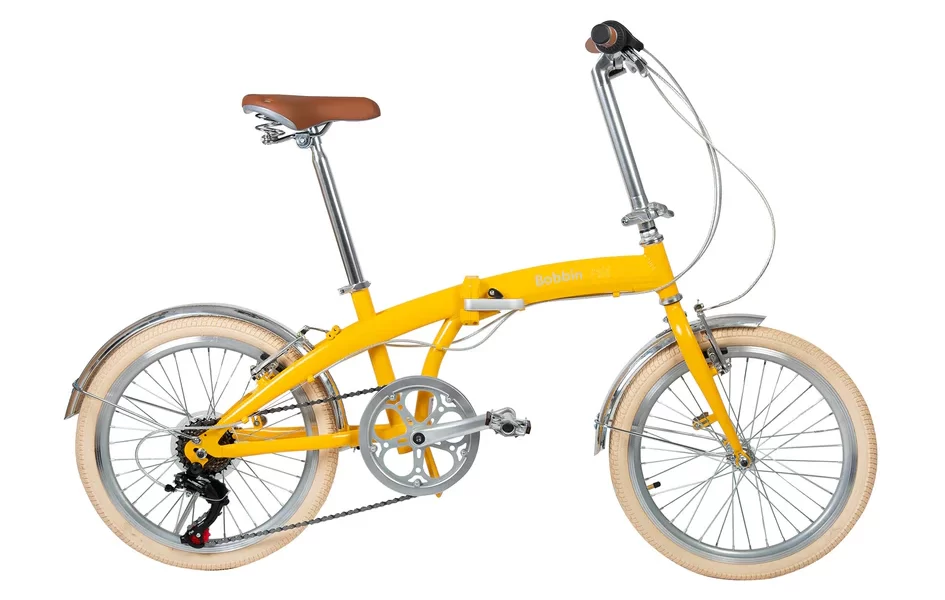City travellers are increasingly drawn to folding bikes, and the reasons are easy to see. The convenience, portability, and environmental friendliness that these wheels offer make them an ideal choice in the cities.
However, as with all means of getting around, foldable bikes have a few issues that hold them back. So, does a folding bike align with your urban lifestyle? Time to evaluate the odds.
Pros of folding bikes
Compact bikes are excellent for urban living and simple life. These bikes save room, require little in terms of expenses and are kind to the environment.
Longing for a transport mode that’s green, space-saving or even pocket-friendly? A compact bike could be your perfect fit.
1. Compact and portable
Talking about saving space, the brilliance of folding bikes comes to light. They fold and load onto public transport with such ease, tuck neatly under your workspace or sit comfortably in your living quarters. This makes them a fantastic choice for city cyclers where space is often at a premium.
And when you think about safety? Keeping your bike indoors wipes out the need for parking outdoors and skillfully brings down the chance of it being stolen – an absolute victory in bustling city spaces.
2. Eco-friendly alternative
Selecting a bike ride over a car ride contributes to purer atmospheres and diminished traffic jams. Each cycle makes your city a little bit greener. Not to mention, if your commute mostly consists of sitting in slow-moving traffic queues, the amount of time added to your journey by cycling may be much smaller than you would think.
3. Cost savings on transportation
Think over the considerable chunk you blow on public transportation or preserving your automobile. Wouldn’t it be nice to cut down on those expenses?
Foldable bicycles are significantly cheaper to keep up in the prolonged run, dismissing the demands for gas, parking charges, or customary car maintenance checks. Despite a first-time cost that may appear high, the savings rapidly accumulate.
Cons of folding bikes
Folding bikes, despite their numerous benefits, also have their share of downsides. Their exceptional design can be advantageous for specific requirements but might pose problems based on your travel route and needs.
Isn’t it crucial to consider these possible inconveniences along with the perks, prior to deciding whether a folding bike aligns with your way of life?
1. Limited speed and stability
Folding bikes, characterised by their tiny wheels and condensed structures, aren’t designed for a fast pace. They’re perfect for strolling through urban lanes with ease, but if you’re aiming to dart about or face bumpy terrains, they might seem a bit shaky, particularly on elevated terrain.
2. Higher upfront cost
The issue of cost springs up when considering folding bikes. They often carry a heavier price compared to their traditional counterparts. For those who are careful with finances and prefer to commute, this could be an obstacle. However, remember that the long-term savings on transportation costs can offset this initial investment over time.
3. Less suitable for varied terrain
While folding bikes excel on smooth, flat city roads, they’re not the best choice for tackling rough or hilly terrain. For longer commutes or routes with rougher landscapes, you might find them lacking in comfort, speed, and stability.
Conclusion
Folding bikes are great for people who live in cities and want an easy, Earth-friendly way to get around.
They’re compact, portable, and a great solution for reducing your carbon footprint. However, they’re not without their drawbacks, such as limited speed, higher upfront costs, and reduced versatility on uneven terrain.
Before you make the leap, think about your commute style and storage needs. And if you have not yet bought a foldable bike, we recommend checking out Bobbin Bikes. As the original classic bike company, they provide fashionable bicycles and cycling gear for commuters and families, and we’re sure you’ll be able to find something for yourself there.


